Theme: Innovative and Ecofriendly Approaches for Agriculture
AGRICULTURE ASIA PACIFIC 2021
Welcome to Agriculture Asia Pacific 2021!
On behalf of the Agriculture Asia-Pacific 2021 Organizing Committee, we take great pleasure in inviting all participants from around the world to attend the “Global Summit on Agriculture and Organic Farming” to be held from February 22 to 23, 2021 on the theme
Why participate?
The Ongoing research on technologies and strategies, sustainable agriculture and integrated agriculture, crop improvements, the Current updates in soil and plant science, agriculture and organic farming are the characteristics of this conference. Lead presentations, disseminate data, foster networking with current and potential specialists, and create a sensation with the latest enhancements and recognition for participating in this second day opportunity. Agriculture Asia Pacific 2021 empowers you to move, learn and adopt better approaches to improve professional career prospects in agriculture and organic coaching.
Why To Attend:
World-class speakers and emerging new talents from around the world in the agriculture industry. Full Schedule: Multitrack conference, workshops, exhibition space and many more. To learn something about the latest technologies and innovation in the fields of Agriculture-food, Aqua Live, integrated agriculture horticulture. To improve your skills and abilities for crop improvement, yield improvement and soil management. To increase your network with your fellow researchers in the field of agriculture, plant science and food safety. To give you the means to fill the void created by the national shortage of participants.
- Faculty of Agricultural Sciences, Students, Scientists
- Faculty of Plant Sciences, Students, Scientists
- Faculty of Animal Sciences, students, scientists
- Universities of Soil Sciences and Agriculture
- Scientists in forestry and landscaping
- Agricultural and plant associations and societies
- Entrepreneurs and exhibitors
- Research and training institutes
- Seed science and weed management researchers
- Experts in soil science and soil-plant nutrition
- Agriculture and food security
- Agricultural device manufacturing companies
- R&D laboratories, chemical and fertilizer industries
- Media partners and collaborators
- International delegates and world observers
- Students and young researchers.
Agriculture Asia Pacific 2021 Conference Unique Opportunities
For Researchers and Faculty Members:
Speaker Presentations, Workshop organizing, Symposium hosting (4-5-member team), Poster Display
For Universities, Associations & Societies:
Association Partnering, Collaboration proposals, Academic Partnering, Group Participation
For Students and Research Scholars:
Poster Competition (Winner will receive Best Poster Award), Young Researcher Forum (YRF Award to the best presenter), Student Attendee, Group Registrations
For Business Delegates:
Speaker Presentations, Symposium hosting, Book Launch event, Networking opportunities, Audience participation
For Business Entities:
Exhibitor and Vendor Booths, Sponsorship opportunities, Product launch, Workshop organizing, Scientific Partnering, Marketing and Networking with clients
Agriculture Asia Pacific 2021 is the reputed conference which aims to provide best platform to explore the emerging strategies and novel technologies in the fields of Agriculture and Organic Farming.
All accepted abstracts will be published in respective Scientific International Journals. Abstracts will be provided with Digital Object Identifier Cross reference. Selected contributions will be published in following subject related international Journals
- Advances in Crop Science and Technology
- Journal of Agro technology
- Journal of Horticulture
- Asian Journal of Plant Science & Research
- Journal of Aquaculture Research & Development
On behalf of Organizing Committee of Agriculture Asia Pacific 2021, we take immense pleasure in inviting all the participants over the world to attend the “Global summit on Agriculture & Organic farming” will be held during February 22-23, 2021 with theme “A Sustainable Eco-Friendly Agricultural Approach to Crop Improvement”.
Current research on emerging technologies and strategies, integrated agriculture and sustainable agriculture, crop improvements, the most recent updates in plant and soil science, agriculture and organic farming are the characteristics of this conference. Leading presentations, disseminating data, fostering networking with current and potential specialists, making a splash with the latest enhancements and acknowledging participation in this second day opportunity. Agriculture Asia-Pacific 2021 empowers you to move, learn, and adopt better approaches to enhance professional career prospects in agriculture and organic coaching.
Target Audience:
- Agriculture Science Faculty, Students, Scientists
- Plant Science Faculty, Students, Scientists
- Animal Science Faculty, Students, Scientists
- Soil Science and Agricultural Universities
- Forestry and Landscaping Scientists
- Agriculture and Plant Associations & Societies
- Business Entrepreneurs and Exhibitors
- Research & Training Institutes
- Seed Science and Weed Management
- Soil science and soil-plant nutrition Experts
- Agriculture & Food Security
- Manufacturing Agricultural Devices Companies
- R&D Laboratories, Chemical & Fertilizers Industries
- Media partners and Collaborators
- International Delegates and global observers
- Students and Young Researchers
is the reputable conference that aims to provide the best platform to explore emerging strategies and technologies in agriculture and organic farming. Join us for an exceptional science symphony and enjoy the spectacular and unique beauty of Tokyo, Japan.
|
Conventional Farming
|
Organic Farming
|
|
Centralization
|
Decentralization
|
|
Dependence
|
Independence
|
|
Competition
|
Community
|
|
Domination of nature
|
Harmony with nature
|
|
Specialisation
|
Diversity
|
|
Exploitation
|
Restraint
|
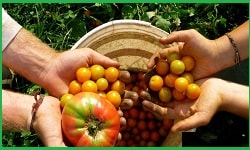
Organic farming is the method of crop and livestock production that involves much more than choosing not to use pesticides, fertilizers, genetically modified organisms, antibiotics and growth hormones. In other words, it is referred to as, low input farming and uses natural sources of nutrients such as compost, crop residues and manure, and natural methods of crop and weed control, instead of using synthetic or inorganic agrochemicals.
- To increase genetic diversity
- To promote more usage of natural pesticides
- Ensure the right soil cultivation at the right time
- Keep and build good soil structure and fertility
- Control pests, diseases and weeds
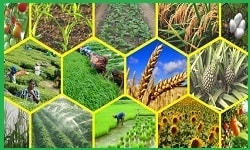
Integrated farming (commonly known as mixed farming) is a farming system with continuous activities including animal and crop. Integrated agriculture includes systems of farm with economic, environmental, social, and intergenerational sustainability. In an integrated and sustainable agriculture system the goal is not necessarily producing immediate outputs, but rather it maintains a system of healthful production, over time. The major components of a sustainable system include community, environment, and economy. This mixed farming system recycles all wastes so that little is thrown away: someone’s waste is indeed another’s food.
The resource that must be managed in such a way that it takes all of these related components into account. Economically, the farm works fulfill the financial needs of the farmers and those employed by the operations. The work in the agricultural system is done in an environmentally sound manner, with the preservation of natural resources including water, soil and air. The operations also sustainably provide access to food to everyone in the community, which allows for opportunities for cooperative relationship.
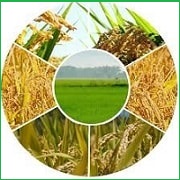
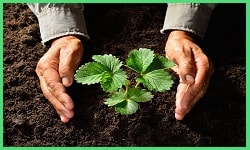
- Increase profitable farm income
- Promote environmental stewardship
- Enhance quality of life for farm families and communities
- Increase production for human food and fiber needs

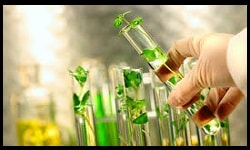
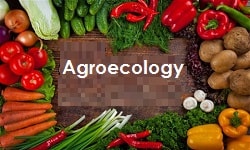
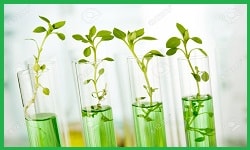
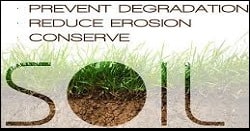

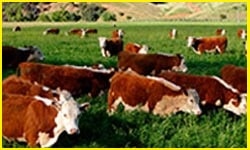
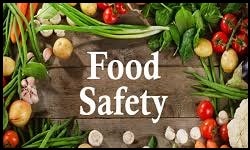

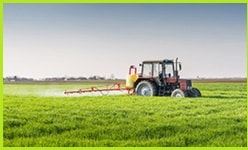
- Make nutrients available.
- Make the root rhizosphere livelier.
- Growth-promoting substances are produced.
- More root proliferation.
- Better germination.
- Improve the quality and quantity of produce.
- Improve the fertilizer use efficiency.
- Higher biotic and abiotic stress tolerance.
- Improve soil health.
- Residual effect.
- Make the system more sustainable
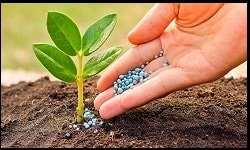
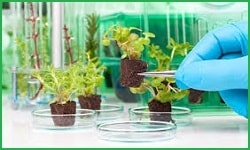
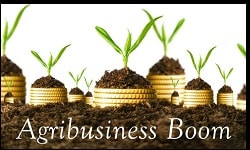


Track-20 Agricultural climatology

Singapore, Singapore | European Conference on Agrotechnology and Horticulture July 11-12, 2019 Ljubljana, Slovenia | International Conference on Organic Farming & Sustainable Agriculture July 18-19, 2019 Luxembourg City Luxembourg | European Conference on Farm Management System May 06-07, 2019 Amsterdam, Netherlands | 12th World Congress on Plant Biotechnology & Agriculture June 12-13, 2019 Prague, Czech Republic | International Conference on Food & Beverages September 09-10, 2019 Singapore | Plant Science and Agriculture Research 2019 Sep 11-12, 2019 London, United Kingdom | Euro Belgium Food Science and Agriculture Summit May 13-14, 2019 Brussels, Belgium | World Dairy and Poultry Tech and Expo Jan 29-30, 2019 Brussels, Belgium | 14th International Conference on Agriculture & Horticulture August 15-16, 2019 Rome, Italy
USA: Alliance of Crop, Soil, and Environmental Science Societies (ACSESS); The American Horticultural Therapy Association (AHTA); The American Horticultural Society (AHS); The American Phytopathological Society (APS); International Society for Horticultural Science American Society of Plant Biologists (ASPB); Soil Science Society of America (SSSA); Crop Science Society of America (CSSA); American Society of Agronomy (ASA); Weed Science Society of America (WSSA)
Asia Pacific: Crop Science Society of Japan (CSSJ); The Asian Crop Science Association (ACSA); The Asia and Pacific Seed Association (APSA); Asian Pacific Weed Science Society (APWSS); Asia & Pacific Plant Protection Commission(APPPC); Asian Vegetable Research and Development Center (AVRDC) Asia-Pacific Association of Agricultural Research Institutions (APPARI); Australian Bureau of Agricultural and Resource Economics and Sciences (ABARES); The National Vegetable Society (NVS); African Seed Trade Association (AFSTA); National Centre for Genetic Engineering and Biotechnology (BIOTEC)
Introduction
Productive Agriculture and Organic farming methods combine the scientific knowledge of ecology and modern technology with traditional farming practices based on naturally occurring biological processes. Relatively recent innovations in seeds, chemicals and fertilizers have enabled agricultural producers to meet the ever-growing demands of a hungry world population. Even with the rapid increases in agricultural productivity, however, challenges for the agriculture industry to supply the growing global economy with sufficient supplies of agricultural staples are greater now than ever before.
Scope and importance
The basic principle in the organic farming system is to produce maximum yield with the highest possible quality. At the same time, it should not affect the soil fertility, soil health, and environment. Due to the extensive use of chemical fertilizers, there is a huge toll on humans with the poisonous effects. Hands more and more people are in search of organic fruits and vegetables. Hence there is a steep increasing the demand of organic farming system for Organic fruits, vegetables, and foods.
Why to Attend ???
The significance of agriculture in human life is significant. Agriculture and agricultural products are essential for us. Food, energy, medicine and so many things we are able to get from agriculture. This conference seeks to bring all such scientist, Noble Laureate, researcher, research scholar, students and people together who are involved in this field and provide them to discuss their innovation, exchange ideas and interact with each other.
Agricultural perspectives
- The Asia region is a decisive component in the global food chain, accounting for 19% of total global food and agriculture exports and 31% of total food and agriculture imports
- Asia’s large and growing population, coupled with rising incomes and a burgeoning middle class, will continue to drive demand for food & agricultural commodities and resources
- On the other hand, Asia cannot produce enough to support itself. Limited arable land, inadequate water and poor resource management, low farm yields, environmental and soil degradation and infrastructure inadequacy are limiting production. Consequently, Asia and especially China’s need for imports and investment locally and abroad is likely to increase
- Asia agribusiness and food & agriculture companies are likely to grow in size and scope to meet the increasing demand, national policies, rising organisational capabilities, and integration and consolidation throughout the value and supply chains
Factors limiting the agricultural production potential
Limited arable land and inadequate water resources in Asia form a natural ceiling to agricultural supply. Consolidation of farmland and better water management have the potential to boost production. At the same time, conflicting demands in land usage and water pollution act as constraints. Given a growing population and increasing demand for cereals for both food and feed, sustained increases in yields are required in Asia. However, factors such as changes in cropping patterns and diminishing returns on modern seed varieties have led to a stagnation of production growth in the last two decades. Increased use of fertilisers as farmers try to maintain productivity is also progressively degrading soil quality in many places. Increased usage of chemical pesticides has further compounded the issue of soil quality and environmental pollution. Here below are some of the major limiting Factors
- Small and fragmented holding size
- Water will be a key limiting factor
- Self-sufficiency policy
- Rising rural wages
- Impact of climate change
- The region lags in R&D spend in agriculture
- Investment in physical infrastructure (roads, ports, railway terminals)
- Storage and cold chain logistics
- Technology investment to improve farm productivity and farm-business connectivity
Country Profiles with International, Asia and Oceania Emerging Markets at China and Hong Kong, India, Indonesia, Malaysia, Philippines, Thailand, Vietnam, New Zealand, Australia
Fund Allotment to Agriculture & Organic farming Research
Agriculture Finance & Agriculture Insurance
- Agriculture finance empowers poor farmers to increase their wealth and food production to be able to feed 9 billion people by 2050.
- Our work in agriculture finance helps clients provide market-based safety nets, and fund long-term investments to support sustainable economic growth.
- Demand for food will increase by 70% by 2050; at least $80 billion annual investments will be needed to meet this demand.
- Grant Opportunities : International Fund for Agricultural Development (IFAD) | Terra Viva Grants | The Foundation Center | International Human Rights Funders Group | Global Giving’s | Environmental Defender Law Center | Philanthropic News Digest | Asia Pacific Philanthropy Consortium (APPC) | Global Philanthropy Alliance | The Indigenous Peoples Assistance Facility (IPAF) | Global Facility for Disaster Reduction and Recovery (GFDRR) | FOMA Charitable Trust | Global Index Insurance Facility (GIIF) | Global Food Price Crisis Response Program (GFRP) | Global Food Safety Partnership (GFSP)
Major Agricultural Industries in Worldwide:
The number of agricultural industries and services is growing at a faster rate in all around the world covering Asia, Europe, Africa, North and South America which are major regions of the world. Top 20 industries with their country name have been enlisted below:
- Kerry Group, Ireland
- Vilmorin, France
- Adler Seeds, US
- China Agri-Industries Holdings, China
- ContiGroup Companies, Belgium
- Case Corporation, US
- Golden State Foods, US
- Heritage Foods, India
- Noble Group, South America
- The Mosaic Company, US
- Monsanto, US
- Wayne Farms, US
- Dawn Meats, Ireland
- Groupe Limagarin, France
- Bayer Crop Science, Germany
- New Holland Agriculture, Italy
- John Deere Tractor, US
- CLAAS, Germany
- Skellerup, New Zealand
- Technofarm International, Libya
Agriculture Research centers worldwide:
- Consultative Group for International Agricultural Research, France
- Africa Rice Center, Benin
- Bioversity International, Italy
- Center for International Forestry Research (CIFOR), Indonesia
- International Center for Tropical Agriculture (CIAT), Colombia
- International Center for Agricultural Research in the Dry Areas (ICARDA), Lebanon
- International Crops Research Institute for the Semi-Arid Tropics (ICRISAT), India
- International Food Policy Research Institute (IFPRI), United States
- International Institute of Tropical Agriculture (IITA), Nigeria
- International Livestock Research Institute (ILRI), Kenya
- International Maize and Wheat Improvement Center (CIMMYT), Mexico
- International Potato Center (CIP), Peru
- International Rice Research Institute (IRRI), Philippines
- International Water Management Institute (IWMI), Sri Lanka
- World Agroforestry Centre (International Centre for Research in Agroforestry), Kenya
- WorldFish Center (International Center for Living Aquatic Resources Management), Malaysia
Global Agriculture Universities:
- University of California, U.S.
- China Agricultural University, China
- Universidade de São Paulo, Brazil
- Ghent University, Belgium
- Aarhus University, Denmark
- University Hohenheim, Germany
- University of Guelph, Canada
- University of Copenhagen, Denmark
- University of Western Australia, Australia
- University of Helsinki, Finland
- Swedish University of Agricultural Sciences, Sweden
- University of Valencia, Spain
- University College Dublin, Ireland
- University of Reading, United Kingdom
- Universidade do Porto, Portugal
- National Taiwan University, Taiwan
- Massey University, New Zealand
- National Taiwan University, Taiwan
- University College Dublin, Ireland
- Cornell University, United States etc...
Japan Major Universities:
- Tokyo University of Agriculture and Technology
- Kyoto Prefectural University
- Hokkaido University
- Kyushu University
- Nagoya University
- Kobe University
- University of Tsukuba
- Tohoku University
- Chiba University
- Osaka Prefecture University
- Gifu University
- Shinshu University
- Ibaraki University
- Shizuoka University
- Keio University
- Waseda University
References : https://www.ers.usda.gov/publications/pub-details/?pubid=40694
https://economics.rabobank.com/publications/2016/february/asia-pacific-agricultural-perspectives/
https://www.worldbank.org/en/news/press-release/2018/03/23/world-bank-lays-out-vision-for-cleaner-safer-agriculture-in-east-asia
https://www.statista.com/statistics/651784/asia-pacific-growth-rate-of-agriculture-sector-by-country/
https://www.ifad.org/en/
https://www.apec.org/
https://www.euromonitor.com/
http://www.maff.go.jp/e/data/stat/
https://www.marketsandmarkets.com/Market-Reports/organic-fruits-vegetables-market-230995550.html
https://www.grandviewresearch.com/industry-analysis/organic-foods-beverages-market
http://www.agropolis.org/cooperation/CGIAR-international-agricultural-research-centers.php
https://www.cgiar.org/research/research-centers/
http://mofa.gov.gh/site/?page_id=6501
https://knoema.com/JPAGRSTAT2017/japan-agricultural-statistics?prefecture=1000000-japan
http://www.unsiap.or.jp/
http://ricepedia.org/japan
http://www.fao.org/asiapacific/perspectives/agricultural-statistics/global-strategy/countries/en/
https://www.unescap.org/our-work/statistics/environment-and-agricultural-statistics
Abstract Submission Guidelines:
With absolute enthusiasm and the Will to influence, we extend a warm invitation to attend the Global summit on Agriculture & Organic farming, February 22-23, 2021..
This year with the refreshing theme on “Sustainable Eco-Friendly Agricultural Approach to Crop Improvement”. All abstracts must be written exclusively in English (including the title, abstract text, author names and affiliations).
The length of the abstract must not exceed 300 words including short biography of the author (limited to 150 words).
All the abstracts will be reviewed by the scientific committee and all the accepted abstracts will be published in the conference proceeding books.
Submit your Abstract online:
https://agriculture.agriconferences.com/abstract-submission.php
Mark Important Dates:
Conference Dates: February 22-23, 2021
Abstract Submission Deadline: Dec 31, 2020
Early Bird Registration Deadline: December 02, 2020
Final Call for Registration: Jan 22, 2021
Registration Benefits
Only Registration Includes:
- Access to All Sessions and Workshops
- CPD accredited
- A free paper abstract in our Journal for free of cost
- Accepted Abstracts will be published in respective supporting journals,
- Each abstract will be labelled with a DOI provided by Cross Ref.
- Certificate of presentation by the International Organizing Committee (IOCM)
- Certificate of Presentation
- B2B meetings
For Group registration
Contact: Ritesh(Program Manager)
Email: agriculture@asiameets.com
WhatsApp: +32-466-903-064
Registration Link: https://agriculture.agriconferences.com/registration.php
Conference Highlights
- Food and nutrition security
- Agricultural waste management
- Agricultural engineering
- Biofertilizers
- Transgenic Plants
- Agribusiness Management
- Irrigation management
- Organic food and beverages Market
- Agricultural climatology
- Organic Farming Vs Conventional Farming
- Principles of Organic Agriculture
- Integrated farming
- Crop Protection
- Sustainable Agriculture
- Plant Genomics
- Agroecology
- Agricultural Biotechnology
- Soil Management
- Horticulture & Agronomy
- Livestock Farming
To share your views and research, please click here to register for the Conference.
To Collaborate Scientific Professionals around the World
| Conference Date | February 22-23, 2021 | ||
| Sponsors & Exhibitors |
|
||
| Speaker Opportunity Closed | Day 1 | ||
| Poster Opportunity Closed | Click Here to View | ||
Useful Links
Special Issues
All accepted abstracts will be published in respective Our International Journals.
Abstracts will be provided with Digital Object Identifier by



